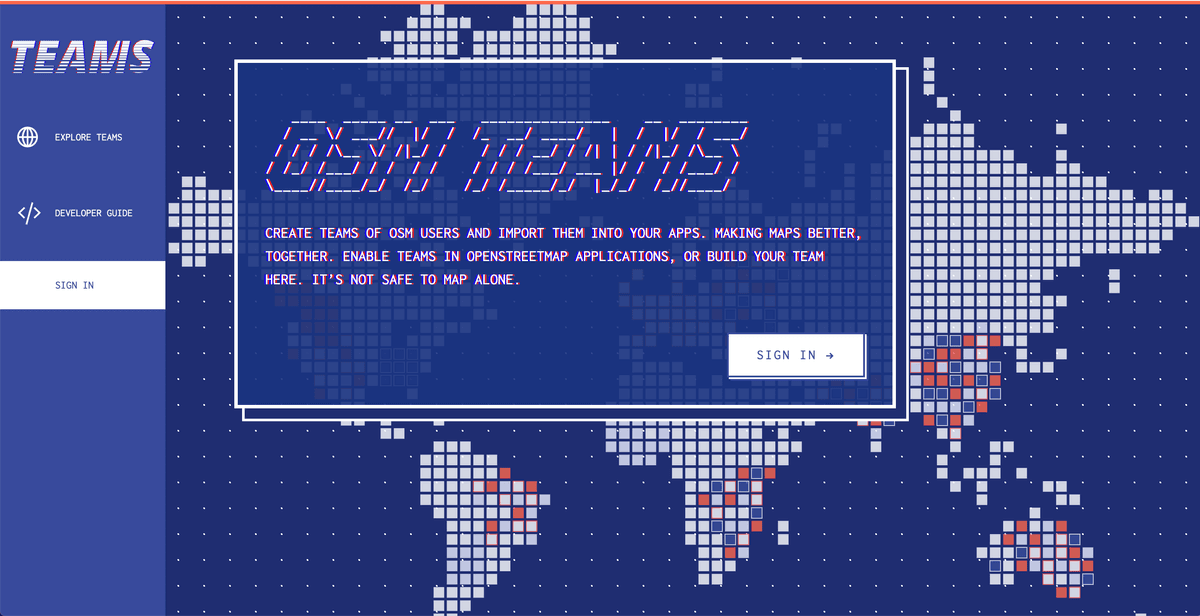Today we are launching the beta of OSM teams! OSM Teams is an independent authentication API that has a framework for creating teams and roles in the OpenStreetMap ecosystem. It will allow for better management of groups and communities to organize around all the existing tools like Tasking Manager, OSMCha, or iD, and a game changer for improving collaboration.

Community has always been central to the success of OpenStreetMap. Yet the lack of a social framework in OSM means that finding communities through mapathons, local groups and mailing lists can be a disjointed process. We believe that providing a way for mappers to connect on a deeper and more engaged level across platforms will allow for better, more consistent contributions. Resources like the OSM Community Index, teams in OSMCha and OSM.org wikis are fantastic for local organizing, but are unable to share this information across the suite of available OpenStreetMap tools.
OSM Teams provides an easier way to connect across platforms, find mappers working in a similar domain, manage coordinated campaigns and tasks, and organize around shared goals. As an independent API, Teams is a lightweight “glue” service to create and manage team membership, which developers can integrate into their platforms to provide a unified team experience for users.
The API can be used with global OpenStreetMap or with containerized instances of OpenStreetMap, such as TeachOSM. Team members, ownership and features are respected in tools across the OSM ecosystem, no matter where the team is created.
Our beta launch allows you to:
-
create a team
-
add members and basic descriptions
-
get an API key to connect third party clients
We invite you to provide feedback and get involved at dev.mapping.team to join the beta, or check out our code and contribute to the osm-teams github repo!
We’re working on developing settings around team privacy (public, private, and unlisted teams) and providing options for open and closed teams. The system will soon allow you to search by team and user name, location and hashtags. In the future we’ll explore how to incorporate messaging boards and event services, and include dynamic team creation from a range of campaigns, locations, and hashtags.
For further reading, check out our Diary Entry. Ping me at @kamicut or my colleagues @geohacker @LaneGoodman if you have questions.
What we're doing.
Latest
